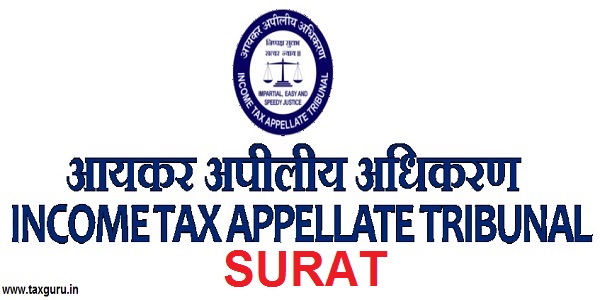Index
> Auditor independence
> Why independence required
> Audit Rotation
> Issues before rotation
> Impact Rotation
> Adequacy of opinion
> Different opinions regarding Rotation
> Conclusion
To begin with we should know what is Auditor’s independence?
Auditor Independence:
Independence means that the judgement of a person is not subordinate to the wishes of another person.
Auditor independence refers to the independence of the internal auditor or of the external auditor from parties that may have a financial interest in the business being audited.
Independence requires integrity and an objective approach to the audit process. Independence requires the auditor to carry out his or her work freely and in an objective manner.
Why independence required
What is Audit Rotation?
> Tenure of Appointment of Individual or Audit Firm as Auditor
> According to section 139(2), an Individual Auditor shall not be appointed or re-appointed for more than ONE term of five consecutive years and an Audit Firm shall not be appointed or re-appointed for more than TWO terms of five consecutive years in Listed Companies or any company belonging to prescribed class or classes of companies.
Class or Classes of Companies prescribed in Rule 5 of Companies (Audit and Auditors) Rules, 2014 are as under:
Restrictions on reappointment of Auditors and mandatory rotation of Auditors/ Audit Firm
As on the date of appointment no audit firm having a common partner or partners to the other audit firm, whose tenure has expired in a company immediately preceding the financial year, shall be appointed as an auditor of the same company for a period of five years.
Transition Period of 3 Years
The 3rd Proviso to Sec 139(2) provides the transition period of 3 years to the existing Companies on or before the commencement of this Act to comply with the requirements of these provisions within three years from the date of commencement of this Act.
| Cooling off Period | Point to be noted: |
| Break in the term for a continuous period of 5 years will be considered as fulfillment of criteria of rotation.
Provisions relating to Rotation of Auditors are not applicable to One Person Company and Small Companies. Also Rotation of auditors does not apply to Dormant companies. |
a) Break in the term for a continuous period of five years shall be considered as fulfilling the requirement of rotation.
(b) If a partner, who is in charge of an audit firm and also certifies the financial statements of the company, retires from the said firm and joins another firm of chartered accountants, such other firm shall also be ineligible to be appointed for a period of five years. |
Impact of Audit Rotation on Auditor’s Independence
ISSUES BEFORE AUDIT ROTATION
A long auditor-client relationship can cause complacency, lack of innovation, less rigorous audit procedures and a learned confidence in the client may arise after long association.
The auditors have economic incentives not to disclose material errors or breaches in view of retaining their client. This practice results from the need of the auditor to protect his investment in client-specific expertise that is gradually built up during the years of co-operation.
The quality and competence of auditors work can decline over time as auditors become over-familiar with their audit clients and, as a consequence, begin to lose their professional skepticism and make unjustified assumptions.
IMPACT AFTER AUDIT ROTATION
- Mandatory audit firm rotation would also increase the public’s perceptions of auditors’ independence as it provides a distancing between audit firm and audit client personnel.
- Audit Rotation breaks such relation between auditor and auditee as new auditor/Audit firm has to be compulsorily be appointed after every five years which result in new audit procedures and methods of doing work which compensate the loss of overlooking and lack of awareness. Thus increasing the independence of Auditor.
- Rotation of auditors contributes towards the independence by breaking the financial dependency of auditor on clients and relation among them which are threats to independence.
- The auditor will not be burdened from pleasing the client’s management and at the same time will reduce the auditor’s concern over losing the client.
- Mandatory audit firm rotation would help in the more even development of the auditing profession, helping smaller and medium-sized audit firms to grow.
ADEQUACY OF ROTATION
The provision of Audit Rotation has contributed towards audit independence a lot by carving the chances of financial dependency and client relationship.
Appointment of new auditors changes the audit processes and procedures which mitigates the chances of overlooking and increases audit Awareness which enhance the quality of audit and audit opinions.
Due to the limited tenure of Audit engagement auditors are no longer influenced by their clients. They are free to apply their auditing tools to find the true and fair view of financial positions without any hesitation.
Different Opinions Regarding Audit rotation
Mandatory rotation of audit firm is considered as a means of adding value to the independence of the auditors.
However, many argued that the advantages of introducing it would not outweigh the cost associated with switching audit firms every few years. It is said that maintaining the same auditor may actually improve the quality of subsequent audits, as the auditor’s store of institutional knowledge increases.
Rotation is costly and disruptive and could undermine audit quality. Mandatory rotation increases the risk of audit failure, because the incoming auditor places increased reliance on the client’s estimates and the representations in the initial years of the engagement. Thus, there may be negative effects on audit quality and effectiveness in the first years following a change.
Opinion in favor
One the other Audit rotation is considered important for maintaining auditor’s skepticism and audit awareness.
Periodically having a new auditor would bring a fresh look to the public company’s financial reporting and help the auditor appropriately deal with financial reporting issues, because the auditor’s tenure would be limited.
Mandatory Audit Rotation enhances the quality of audit report and audit opinion.
Conclusion
> Despite the facts there are some opinions against the provision of rotation of auditors , we can say the Audit rotation is a useful tool which contributes towards the adding value to the auditor’s Independence.
> Audit Rotation is used in many countries for maintaining Auditor independence.
> Audit rotation along with ceiling on audit and certain disqualifications on appointment of auditors as per section 141(3) of companies act 2013, are the basic tools of saving auditor Independence.
























fab job bro
informative one?
Any article for section 141??
Audit was ur fav subject?
Leader ji ossm?
Wahh vishu gud job
nice buddy
keep it up bro✋
gud one very helpful
gud work keep it up
Nyc article
Keep up the hard work ??
Good one bhai
??????
Nyc
Omg itna achha article kabhi ni pda
Nice article
kya baat hai…u have full knowledge….
Nice writings great job
Nyc
Nycc one … Keep it up by providing such a great articles..
Gud work✌
nice write up
Nyc writing
Really a very valuable one Vishu, Fab job buddy I hope others too gain something from your article ❤
Vry nice……
Very useful ?
great?
gud content even mne v prepare kiya tha convention k liye good job bro
Worth reading
helpful article for my topic thanx?
gud job?
what is transional period?
very helpful?
Nice Article
Awsmm bhaijaan?
Nice article